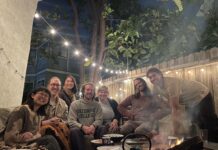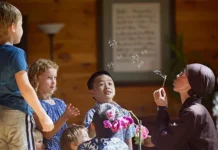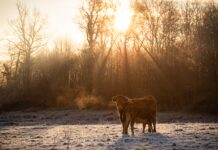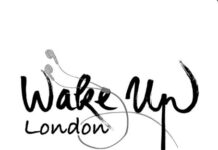Social change activist Kai Sawyer from Wake Up Japan shares about his practice of gift economy and how his experiences help him to realize Interbeing.
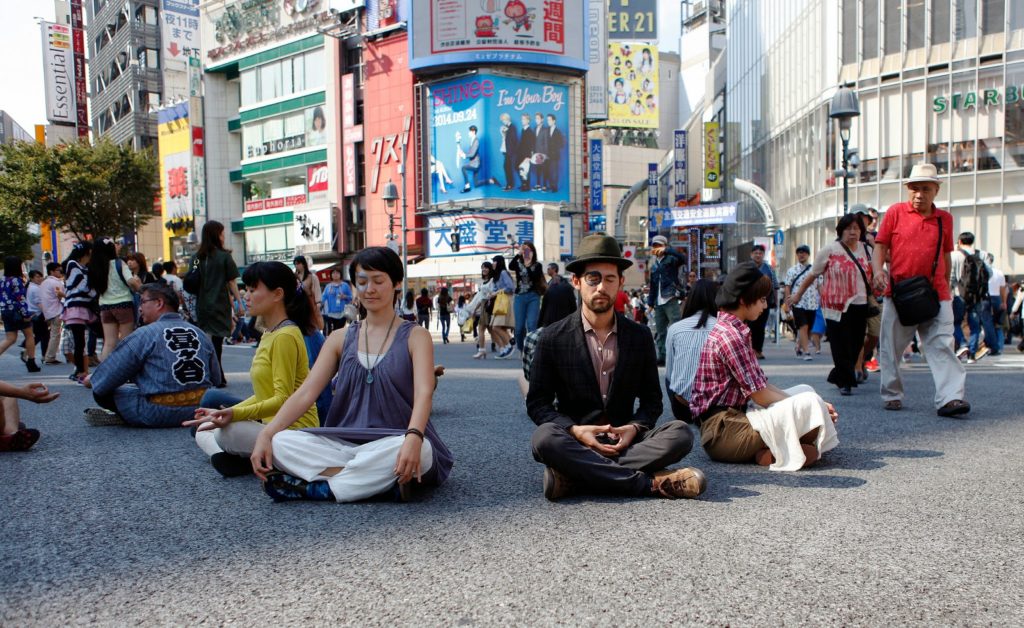
Q: Could you share a bit about yourself, and how Wake Up and Plum Village inform your work?
Kai: Well, I was a student peace activist in California and somebody told me I should go meet Thich Nhat Hanh in 2007. So, I went to Deer Park Monastery for the People of Color Retreat and I was just so moved. I realized that even though I was trying to stop the U.S. war in the Middle East, there was something important that I was missing. There wasn’t peace inside of me and there wasn’t peace in the people I worked with. And just by seeing Thay and being in his presence, it really just struck me as, “Oh, this is what I’m missing!” I was missing this peaceful presence that can manifest in every step, in every breath we take.
Gift economy is about stepping into the unknown and trusting the world
So, from there I fell in love with Plum Village and lived in Deer Park Monastery for two months, where Brother Phap Dung, Brother Phap Ho, and Brother Phap Luu were my mentors. After that experience, I started Wake Up in Japan, and we have been doing walking meditation in the fashion district and flash mobs on the streets of Tokyo.
Together with friends, I founded the Peace and Permaculture Dojo, which is a place primarily for young people to practice mindfulness, nonviolence, and permaculture. Some young people live there and others visit. We have regular days of mindfulness, grow food and regenerate the soil, build structures, practice living in community, and explore nonviolence as a daily practice.
Q: Instead of sustaining yourself financially in the regular ways, you practice gift economy. Can you share about what that means and how you started this journey?
K: I came back to Japan right after the Fukushima nuclear meltdown in 2011. Before then, I was living in the jungle in Costa Rica and on a permaculture farm in Washington. But after the nuclear meltdown, I just was moved to try to make a better world and try to address these larger issues that cause so much suffering.
I decided to move to the capital, Tokyo, because I think that is where a lot of the modern problems are created. Life costs a lot more money in the city, so I had this dilemma of wanting to live my values and be in service. But then, how do you pay for the bills?
If we really serve the world the way the world needs to, we will be supported
I went to a meditation retreat and I was dwelling on this: “Okay, so how do I teach permaculture and nonviolence? And how many people do I need? And how much do I charge them?” And I just felt like it was so trivial that I was here to really be in service and I was so caught up in numbers: making an excel spreadsheet during my meditation and putting in numbers. And figuring out how I could make a living doing this!
Then, I came across the concept of dana, which made me think of the way that monastics live. And I was just really moved by that idea of saying, “Well, if we really serve the world the way the world needs to, we will be supported.” So I started an experiment of just doing permaculture, nonviolent communication (NVC), mindfulness, and other kinds of workshops, which I just did all donation based. I invited people to support me if they were moved to, but it was not a requirement. And they could support me in whatever way they wanted. Or they could just practice—because my purpose was to spread these beautiful seeds that I received from other people and not to make money.
But being in the city, I needed some money. So, I would share that openly with people, saying, “Hey, I would be happy to be supported by you, but more important is that you came and that we practice to make the world a better place.” I didn’t make much money on my first workshops. But instead. somebody introduced me to two places in Tokyo where I could do further workshops. And they said, “We’ll gift you the spaces,” so I could use them for free.
And then, another person connected me to a magazine that wanted to make an article about me, and more people wanted to support me. The gift economy is a practice of stepping into the unknown and trusting the world. My friend and mentor, Nipun Mehta, who lives the gift economy says, “The gift economy is a path where you expect nothing and accept everything.” I think that is similar to what the monastics practice in their daily life. It is just being in the present moment and practicing generosity and gratitude. And you will be challenged by your fears!
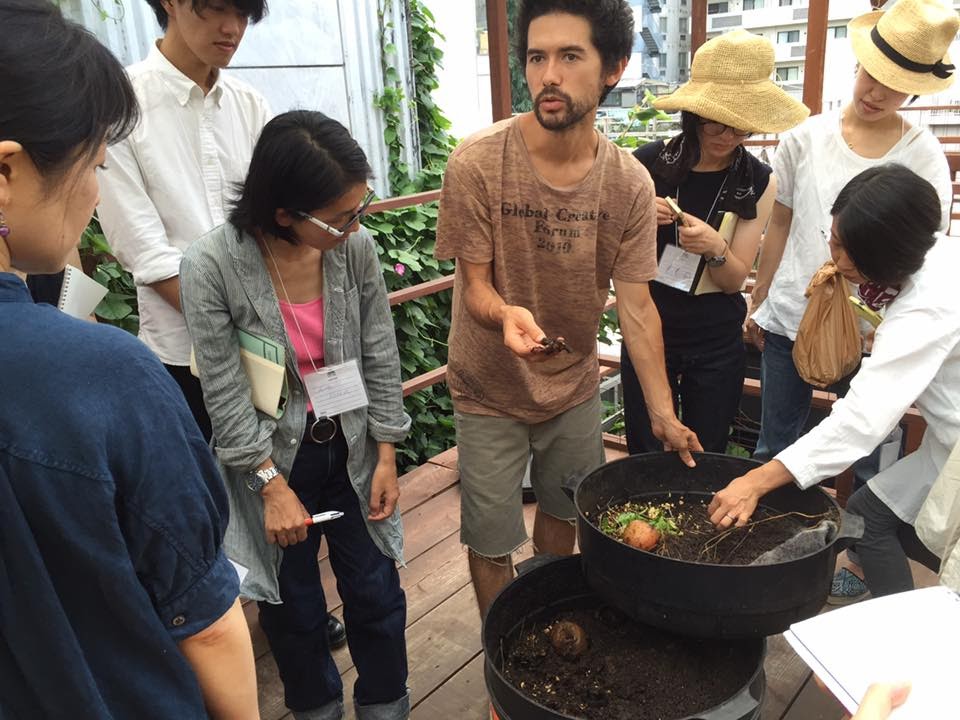
Q: I suppose it is not always easy to maintain this trust that life supports you. What gives you strength in difficult times?
K: Well, it’s definitely a practice. Luckily, I’ve never completely run out of money in my life. It would be different if I was really struggling to buy food or pay for my house. But magical things happen, for instance, right now. Because I have been doing this gift experiment, somebody has offered me basically a free place to live. He has offered me his house and said, “You can just donate however much you want.” When you really step into the world of the gift or a life of service, magical things happen. People have supported me, so that is really one of the things that has helped me feel trust and safety.
And I would say the other thing is a constant practice of gratitude. Thay talks a lot about watering the flowers, and I think that’s what really the gift economy is. It is about watering our gratitude and really putting more energy into saying, “Thank you, I’m alive today. Thank you, I have food today.” I have friends and I have family. The Earth—even though lots of unfortunate things are happening—is still able to support us to live. This really goes into the heart of interbeing, into the fact that, essentially, we don’t exist alone. We can only inter-be.
Expect nothing and accept everything
I think capitalism and our modern consumer culture keeps telling us that we are alone and we are not enough. And so, you need to buy your security, buy your self-confidence, buy your beauty and your meaning. Most of us grew up in that culture, and we are trying to adjust to this unnatural economic system that really puts pressure on us to not live by our values. When I lived in the jungle in Costa Rica, I couldn’t use money to live. But there was food and there were animal friends, and I learned how to grow my own food and chop wood and carry water. I realized at that time that when we breathe, that air is a gift and it is what keeps us alive.
And where does that oxygen come from? It comes from the ocean, the plankton, and the forest. They are always providing us with free oxygen, without which we could not be alive. I realized that I cannot be separated from the ocean or forest. Water comes dropping out of the sky! There is no other planet that we know of where water falls from the sky. If we catch it, it is free—instead of buying plastic bottles. It is just stuff that comes out of the sky and that is such a miracle for me.
When you grow food, you see that it just keeps popping out of the ground and that is the life economy: the ecosystem. Isn’t it strange that no other life form needs money to live but us? In nature, everything cycles as a gift. And for most of our human history, all we have been doing is receiving gifts and then passing them on. And so, even when we are in a city, we are still breathing, we are still drinking water, we are still eating. Unfortunately, there is a price tag on most of that. But the origins of all that food and the water and everything else that we use is from the “gift ecology.” They are priceless gifts from the Earth.
So, the more we align our life with the gift economy, the freer we will become. And the more trust we have in the nature of interbeing: that essentially life supports life. And we are just here to be like the trees. The trees are not asking for any money. They just do their job: they grow, they stand there, they are solid, and they provide us with many gifts. We can learn from the trees and the birds, and just trust that we are okay and that we don’t need to have fear. We can live our lives in service, which will be much more fulfilling because then we are touching the nature of Interbeing.
And while these are my inspirations, my practice is in no way perfect. Sometimes, if I do look at my bank account and if the numbers go down, suddenly fears come up and I wonder, “Oh, is this really working?” And now that I have a child, I sometimes ask myself how I am going to cover our costs, especially because I never know what my income will be. Also, not everything I do is based on donations.
So, I don’t want to give you the illusion that I am some enlightened person. But for me, what is important is that it is a path for each of us to walk. And it is really about aligning yourself with your values, and choosing the path that makes you most alive and really makes your heart sing.
Unfortunately, it is not easy because we don’t have as many friends and people around us that see the world in the same way yet. But slowly, more people are waking up. And if we have a chance to regularly spend time in a place like Plum Village or a community like Service Space, we can find people who are walking the path of service and living the gift. We need to nourish ourselves, so that we don’t feel so lonely and think that we have to struggle our way to a more beautiful world our hearts know is possible. You are a gift!
***
To learn more about Kai`s work, visit his Blog and Toyko Urban Permaculture website
Interviewed by Annica on June 25, 2019 and transcribed by Martina McNaboe. Copyedited by Erica Fugger.

